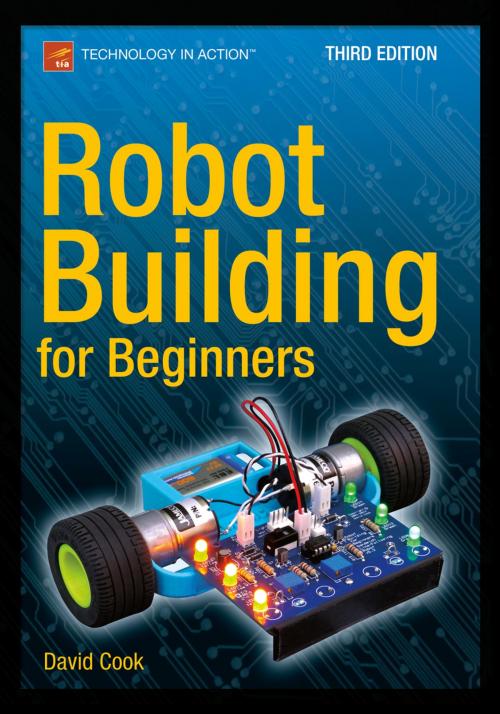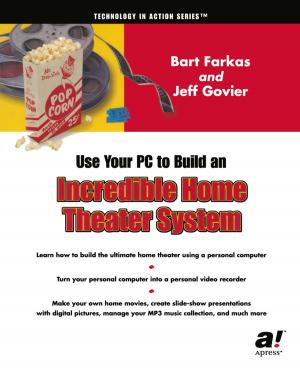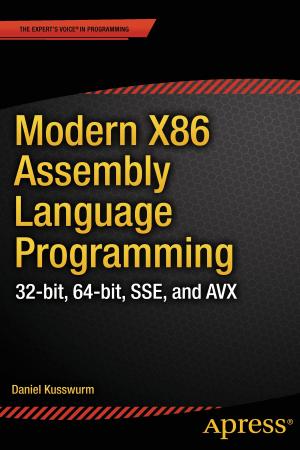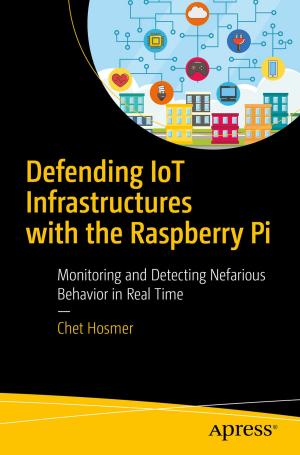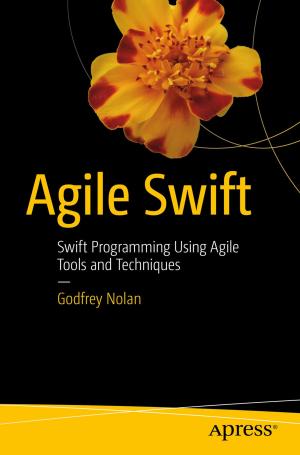Robot Building for Beginners, Third Edition
Nonfiction, Computers, Computer Hardware, Input-Output Equipment, General Computing| Author: | David Cook | ISBN: | 9781484213599 |
| Publisher: | Apress | Publication: | September 2, 2015 |
| Imprint: | Apress | Language: | English |
| Author: | David Cook |
| ISBN: | 9781484213599 |
| Publisher: | Apress |
| Publication: | September 2, 2015 |
| Imprint: | Apress |
| Language: | English |
"I wrote this book because I love building robots. I want you to love building robots, too. It took me a while to learn about many of the tools and parts in amateur robotics. Perhaps by writing about my experiences, I can give you a head start."**--David Cook
Robot Building for Beginners, Third Edition provides basic, practical knowledge on getting started in amateur robotics. There is a mix of content: from serious reference tables and descriptions to personal stories and humorous bits.
The robot described and built in this book is battery powered and about the size of a lunch box. It is autonomous; that is, it isn't remote controlled.
The book is broken up into small chapters, suitable for bedtime (or bathroom) reading.
The characteristics and purposes of each major component (resistor, transistor, wire, and motor) are described, followed by a hands-on experiment to demonstrate. Not only does this help the reader to understand a particular piece, but it also prepares them with processes to learn new parts on their own. An appendix offers an introduction to 3D printing and parts of the robot can, as an alternative, be "printed" using a 3D printer.
The master project of the book is a simple, entertaining, line-following robot.
"I wrote this book because I love building robots. I want you to love building robots, too. It took me a while to learn about many of the tools and parts in amateur robotics. Perhaps by writing about my experiences, I can give you a head start."**--David Cook
Robot Building for Beginners, Third Edition provides basic, practical knowledge on getting started in amateur robotics. There is a mix of content: from serious reference tables and descriptions to personal stories and humorous bits.
The robot described and built in this book is battery powered and about the size of a lunch box. It is autonomous; that is, it isn't remote controlled.
The book is broken up into small chapters, suitable for bedtime (or bathroom) reading.
The characteristics and purposes of each major component (resistor, transistor, wire, and motor) are described, followed by a hands-on experiment to demonstrate. Not only does this help the reader to understand a particular piece, but it also prepares them with processes to learn new parts on their own. An appendix offers an introduction to 3D printing and parts of the robot can, as an alternative, be "printed" using a 3D printer.
The master project of the book is a simple, entertaining, line-following robot.
